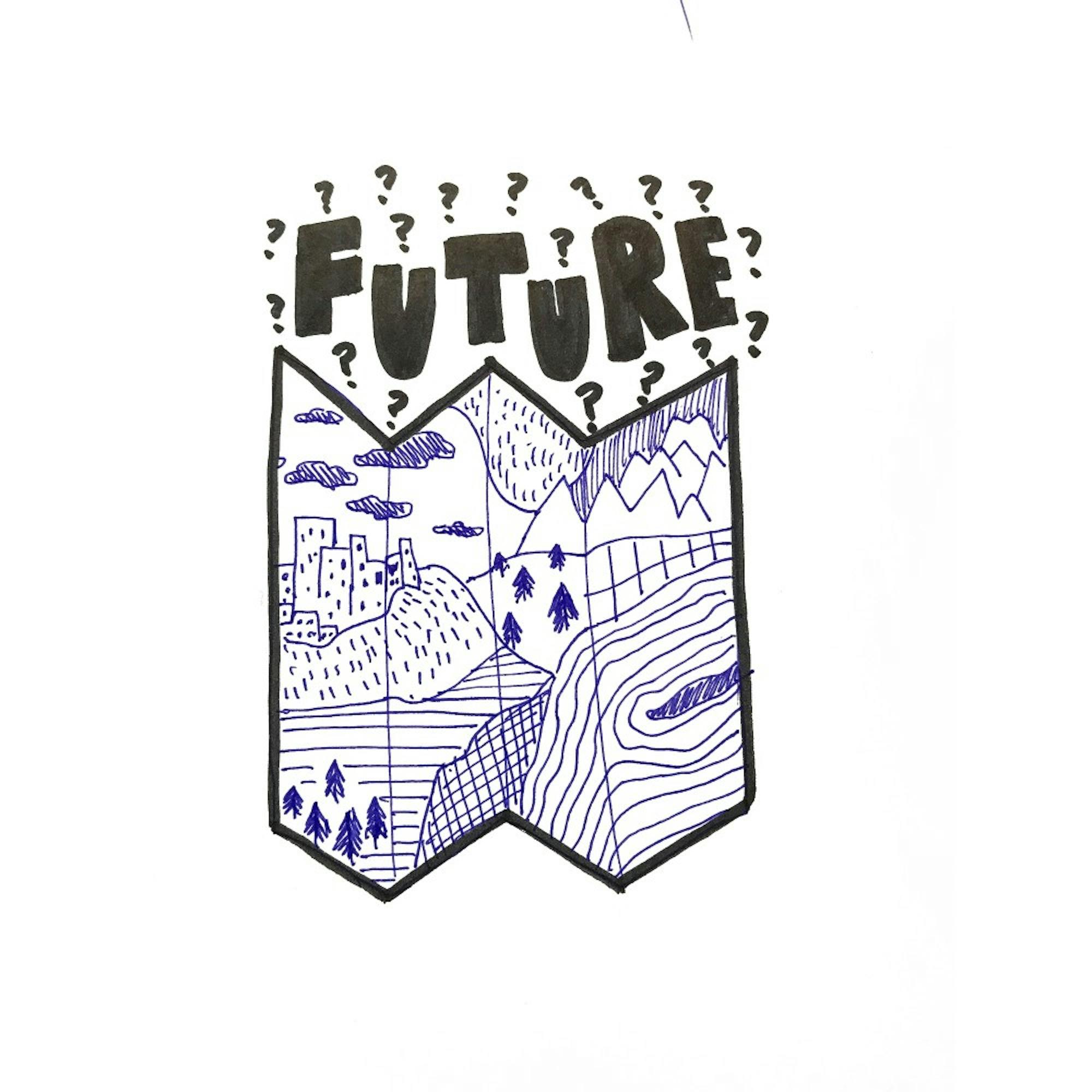“Leap of faith.” What comes to mind? Many of us have grown up hearing this phrase associated with optimism or hope, but I wonder what ties it to fear. Though varied, here are some insightful thoughts on perceiving the “upcoming” and the “unknown” from your very own seniors on campus.
“Fear, to me, is any kind of feeling internally that you get of just holding back ... that gut feeling of you wanting to do something, but you hold yourself back,” shared Jasmine Lee ’19, a government major. As someone who cares about students voicing their thoughts about politics, Lee has found it difficult to find a space, and more importantly, a community to share in this vision alongside.
Finally, she decided to go ahead in planting a creative, student-led club called, “Deconstruct That Policy.” Presently, Lee says this is one act of faith she looks upon proudly as a senior because she had to trust there were other people who also shared the desire to regularly discuss important topics.
“Overcoming fear requires faith in both yourself and others ... in terms of trusting yourself and your motivations ... and being able to understand and connect, even if it’s not with everyone,” she said. “It can be just one or two people.”
Benjamin Nesselrodt ’19 takes another angle on fear and faith.
“If you are taking faith perspectives ... I think, there are two categories of fear ... fear of God, where you respect the fact that something is very powerful ... and is much more powerful than you,” Nesselrodt said. He said the other kind of fear was fear of the unknown.
He explained the distinction between the fear of the practical or the everyday with the fear of what is to come by comparing the fear of driving on the road and the fear of wondering what would become of him post-graduation. His idea of fear had more to do with “magnitude” and “significance” than “horror” or “terror” because his definition of “faith” follows after the biblical one. Faith is a belief in something you do not see but have been assured of. To Nesselrodt, it is like a reciprocal and relational promise about the rhythms and truths in the life.
Nicolle Salazar ’19 believes that “fear is anything that keeps you back from either trying something new, or going somewhere new, or achieving something that you really wanted to, but something gets in the way. I would define fear as an obstacle.” For her, fear of failure is an example of such an obstacle, while faith is then the ultimate belief in yourself, abilities, family, friends and background. “Because I am not religious, I wouldn’t associate faith in a god in the form of religious dogma,” she said.
Therefore, Salazar shared that the biggest leap of faith for her at the moment would be to do something completely alone, something that would prove that she is adult.
“I think standing on your own is really hard ... I haven’t had to do that yet because I’ve had support,” she said. “I think some people younger than us have had to do that already because of circumstances in life, but I haven’t. So that’s [why it is] upcoming.”
Similarly, Nesselrodt believes his greatest “leap of faith” is to come because “through life, the stakes sort of have a way of going up. A leap of faith now, in whatever it may be ... I have a lot of correction time if the faith has been misplaced.” He elaborated by saying with a wife and a family in the future, he will no longer be the only collateral. They will also experience the risks and rewards to his “leaps of faith.”
As cliché as it may sound, there is a gap between the present and the future, the imagined and the real. This gap is what keeps us on the brink of making decisions or acting upon convictions at times, but remember that gaps are particular to each person and situation. Hearing these snippets of thought from my peers called me back to this principle. The so-called “big leaps” of faith do not invalidate the everyday “small hops.” For without them all, there would be no foundation for your unique story to emerge from the greater story arc of life, Nesselrodt insightfully offers an idea shared by his mentor. Therefore, we must thoughtfully consider how we define fear and faith in as many contexts has possible; only then can we see how our fears add meaning to our faith, and faith adds meaning to our fears.




